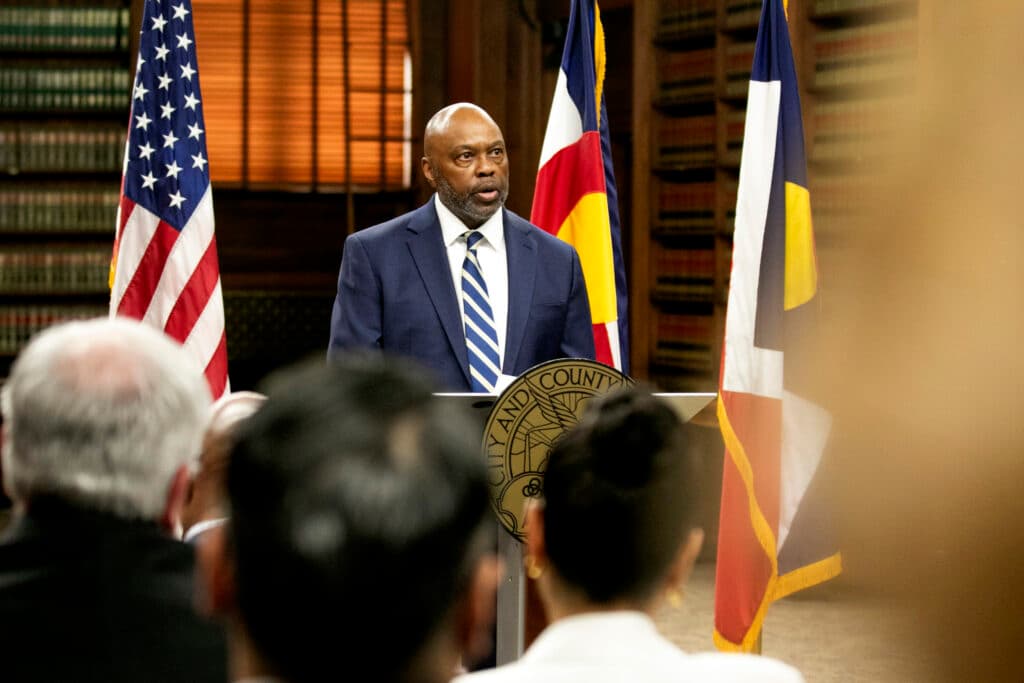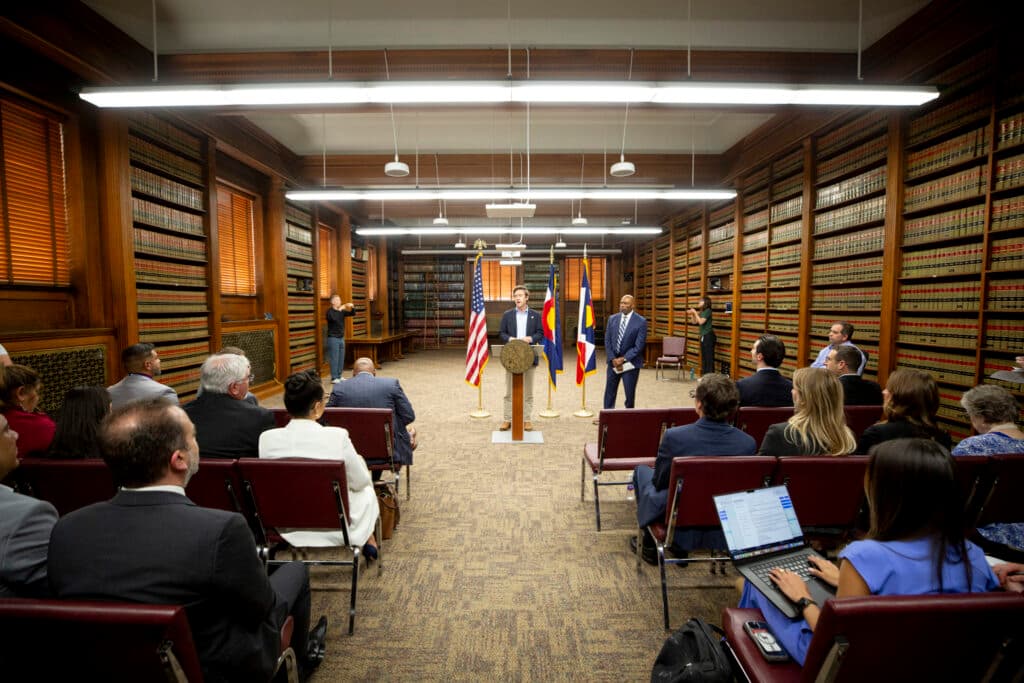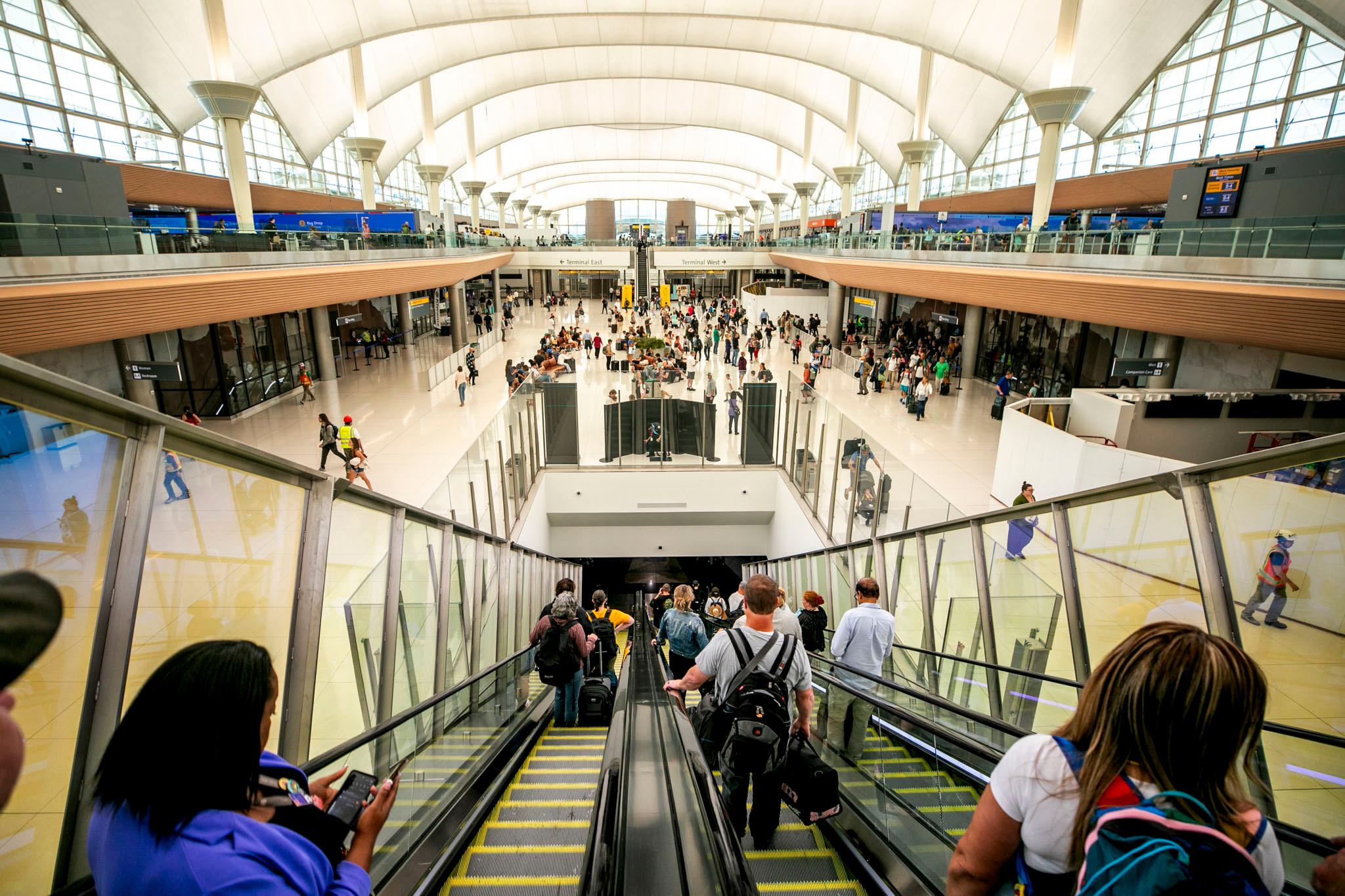Denver International Airport, one of the busiest airports in the world, could one day build a modular nuclear reactor to power its operations and nearby development, including data centers.
The airport will spend up to $1.25 million to commission a study of the feasibility of installing a small nuclear power plant. Officials said modular nuclear reactors — a relatively new technology — can offer safe, clean energy to help the airport meet its sustainability goals.
While the airport has already made considerable investments in green energy, like a 100-acre solar panel farm, CEO Phil Washington said the airport and its surroundings need more sustainable power.
"This would allow us to be the masters of our own energy fate, if you will," Washington said at a press conference on Wednesday.

Mayor Mike Johnston said the potential nuclear facility could attract businesses to open energy-intensive data centers to operate near the airport, with Washington saying that Denver could become the "Silicon Valley of nuclear energy."
“We know that anything we would do would require significant investment and that [small modular reactors] are complex,” Washington said in a statement. “So, we are keeping an open mind, learning more and continuing to responsibly plan for the airport’s future.”
A recent state law could usher in a new nuclear era in Colorado.
Nuclear energy is back in vogue as electricity demand rises in the U.S. for the first time in decades. Future power plants could help support energy-hungry technologies plugging into the grid, like new factories, electric vehicles, and, above all, data centers to support artificial intelligence.
In the U.S, nuclear energy production isn’t exactly rare — especially on the East Coast. However, concerns following the Chernobyl and Fukushima disasters in 1986 and 2011, respectively, have significantly slowed down stateside nuclear reactor development. Colorado’s only nuclear reactor, called Fort St. Vrain, closed in 1992.
Colorado lawmakers have started to embrace nuclear power. Earlier this year, Gov. Jared Polis signed HB25-1040 into law, redefining nuclear energy as a “clean energy resource,” categorizing it alongside renewables like wind, solar and geothermal.

Through the law, fission-based power plants could obtain local grants previously reserved for other carbon-free energy sources, and it would allow those projects to be counted toward Colorado’s clean energy goals.
While some say that nuclear power could be a key component in the drive for around-the-clock sustainable energy, others warn it’s costly and risky.
What is a modular nuclear reactor?
DIA could lead that charge with its potential small modular nuclear reactor, a new technology that is drawing significant interest in the nuclear world.
Small modular reactors work like larger reactors — using nuclear fission, they create heat, which is used to produce electricity. Unlike larger power plants developed in the 20th century, modular reactors can be deployed in fleets, capable of scaling up or down to meet current power demands. The systems, however, still create radioactive waste that must be safely managed and stored, and they don't fully eliminate the risk of meltdowns or other accidents.

The International Atomic Energy Agency, which is based in Austria, says small modular reactors can produce up to 300 megawatts per unit. By contrast, DIA’s 100-acre solar farm is estimated to produce up to 50 megawatts.
Governments and companies are investing heavily in modular nuclear, but the technology is still in its infancy. Small modular reactors have been built in Russia and China, but none have been deployed commercially in the U.S. Holtec International, an energy company, plans to install two small modular reactors in 2030 in Michigan.













